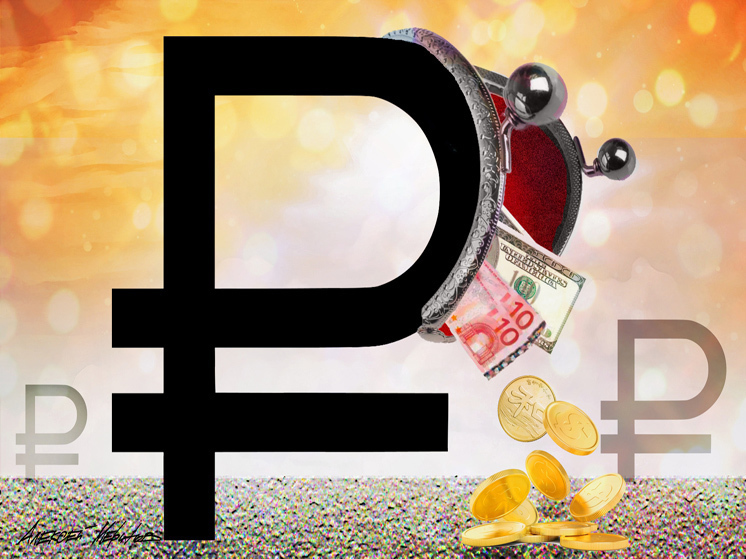Experts explained how correct the desire to keep money at home is and what caused it
The volume of cash currency in the hands of citizens over the past twelve months, by January 1, 2024, decreased by 0. 4%, to just over $97 billion, the Central Bank of the Russian Federation reported. And although this is a small value, the trend itself is interesting: a decrease in cash currency in the hands of Russians occurred for the first time in the last six years. True, in ruble terms this figure increased to almost 9 trillion rubles, which is due to the depreciation of the ruble against the dollar last year by almost a third.

Citizens' foreign currency assets decreased, albeit by a small amount — only 0.4% — but this happened for the first time since 2018. It is curious that before the pandemic, during the pandemic, and after it, the volume of cash currency in the hands of compatriots grew, and in the “sanctioned” year of 2022 they increased by $12 billion. As a result, the total amount of cash last year was $97.24 billion. True, if we convert this figure into rubles, it turns out that the volume of cash currency increased to 8.72 trillion rubles, but this happened due to the thirty percent strengthening of the dollar against the ruble that occurred in 2023. Just for convenience, understanding the trends in the foreign exchange market, the regulator provides figures in dollar equivalent, although citizens now have a wide variety of currencies in their hands.
“The amount of $97 billion is quite significant for citizens to keep,” says investment adviser Yulia Kuznetsova. “For every resident of our country today, $692 is saved, or for the average family this amount is approximately $2,700.” Some of this currency was purchased before 2022, some was purchased after the introduction of restrictions, when the popularity of the dollar and euro in Russia began to fall. And the yuan will grow. “The amount of foreign currency cash in the hands of the Russian population at $97.24 billion is slightly lower than the peaks of 2023 and historical highs in 2022, which indicates a stabilization of the situation and a gradual return of confidence in banking products against the backdrop of an increase in their profitability,” believes an analyst at Freedom Finance Global Vladimir Chernov. He also pointed out that, according to information from the Bank of Russia, Russians hold not only dollars and euros, but also other foreign currencies, including Chinese yuan or UAE dirhams.
Citizens especially actively began to get rid of cash currency from April 2023 — by September the decrease amounted to about $2.5 billion. Russians were actively selling currency against the backdrop of a significant weakening of the ruble exchange rate that occurred last year. However, when the ruble exchange rate against the dollar and euro stabilized by December, the volume of cash currency among compatriots began to grow again: it increased by $1.5 billion in November and by another $0.55 billion in December. This “wave-like” dynamics indicates that Russians will not completely give up storing currency at home, and there are several reasons for this. “Storing foreign currency cash is a kind of “genetic” feature of Russian citizens who remember the events of the 90s and in crisis situations quickly withdraw money from their accounts,” believes Anna Gondusova, director of client relations at Alfa Capital Management Company. Buying cash currency may be associated with both the uncertainty of the economic situation and the desire to have currency on hand in case of going abroad. “Partly, this is currency for one’s own needs, for example, for a planned trip abroad,” continues the conversation, associate professor of the Department of Finance for Sustainable Development of the Russian Economic University. Plekhanov Mikhail Gordienko. But in general. According to him, the strategy of keeping currency at home — a popular practice among Russians in recent decades — may turn out to be risky both due to the factor of currency inflation and due to the lack of income from such investments.
At the same time, according to Kuznetsova, it is still not possible to defeat the “people's love” for the dollar, and this is due, among other things, to its constant increase in price, as well as the campaigning carried out by many “economic bloggers,” calling for “always buy dollars.” Meanwhile, citizens should remember about geopolitical risks, because a moment may come when dollars are generally recognized as a currency that does not circulate in Russia, and then they will have to go abroad to exchange them. So the most correct strategy remains “spreading your eggs in different baskets” or, in investment terms, diversifying your savings, that is, placing your money in bank deposits in different currencies, and in stocks or bonds, if you feel like it. And, of course, it is also worth having some share of foreign currency cash on hand for convenience and travel abroad. How many Russians can afford this kind of diversification is another question…


